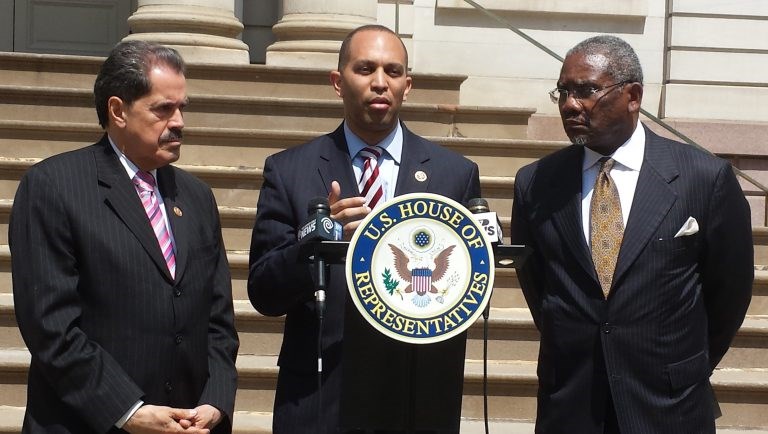The bipartisan prison reform bill aims to develop new programs, including education, vocational training and mental health counseling, to improve public safety and reduce recidivism.

photo credit: Jeffries.house.gov
The U.S. House of Representatives voted to pass the most substantial prison reform effort to date last Tuesday. The Formerly Incarcerated Reenter Society Transformed, Safely Transitioning Every Person Act (FIRST STEP), sponsored by Congressmen Hakeem Jeffries and Doug Collins, includes a series of changes to the Bureau of Prison's (BOP) rehabilitation programs and re-entry processes to improve public safety and reduce recidivism.
"The bill aims to improve the lives of currently incarcerated individuals, folks who have no time for political games. These are individuals who are in the system right now, without hope, without opportunity, without a meaningful chance at transforming themselves," said Jeffries. "The FIRST STEP Act will provide that. It gives them an opportunity to get education now. To get vocational training now. To get mental health counseling now. Why would we possibly refuse that?"
The bill allocates $50 million per year for five years to develop new programs, including education, vocational training and mental health counseling while enacting reforms to improve public safety and reduce recidivism. As a result, newly-released individuals will be positioned to successfully re-enter society.
The comprehensive bill would mandate an expansion of programs in prisons aimed to reduce recidivism; an increase of the time some prisoners can become eligible to serve their sentences in custody outside of prison; an expansion of Compassionate Release by reducing the minimum age of prisoner eligibility for elderly release from 65 years to 60 years, and that prisoners shall be placed within 500 driving miles of their families. The bill also focuses on providing dignified conditions for women and will ban the current practice of shackling women during childbirth.
"Nothing meaningful is ever easy. The mass incarceration epidemic has been with us for almost 50 years," said Jeffries. "You will not just take one magic legislative wand and wipe it away in one shot. It requires sustained effort, intensity and commitment and a meaningful first step. And that's what this bill represents."
The bill passed the House with a 360-59 bipartisan vote and will now move on to the Senate.


.png;w=120;h=80;mode=crop)
